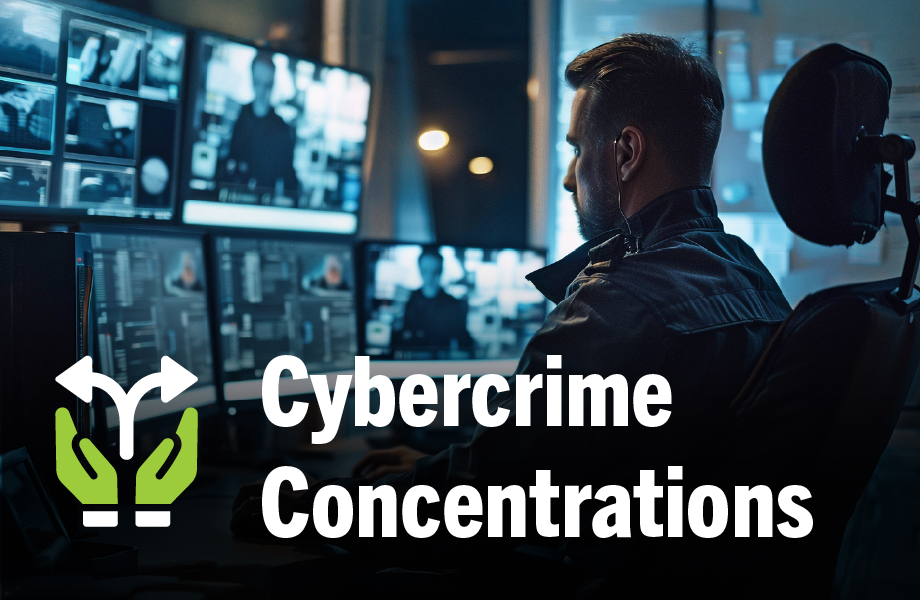Choosing the Right Concentration in the USF MS in Cybercrime
The USF Online MS in Cybercrime offers two specialized concentrations: Cyber Criminology and Digital Forensic Investigations. Each is designed to equip students with the skills and knowledge needed to combat cyber threats. There are 11 credit hours of shared courses between the concentrations. Students pursuing a single concentration, which is 30 credit hours total, choose the remaining courses based on their interests and goals.
By choosing both concentrations, students gain a comprehensive skill set in both cybercrime policy and forensic investigations, making them more competitive for careers in law enforcement, government agencies, and corporate cybersecurity. The dual concentration requires 42 credit hours, offering an efficient way to expand career opportunities.

| Cyber Criminology, 30 Credit Hours | Digital Forensic Investigations, 30 Credit Hours | Double Concentration, 42 Credit Hours |
|---|---|---|
|
This concentration explores the social, behavioral, and legal dimensions of cybercrime, providing insight into how technology influences criminal behavior and policy responses. Students analyze cybercriminal motivations, legal frameworks, victimization trends, and crime prevention strategies, preparing for roles in law enforcement, cyber intelligence, and policy development. Key Courses:
Best Fit For: Those interested in policy, intelligence analysis, criminology research, and cybercrime prevention strategies |
This concentration emphasizes technical skills in digital evidence collection, forensic analysis, and investigative techniques. Students learn how to analyze data from mobile devices, networks, and computer systems, playing a critical role in criminal investigations and cybersecurity enforcement. Key Courses:
Best Fit For: Those pursuing careers in law enforcement, cybersecurity, corporate fraud investigation, and forensic analysis. |
Students who want a comprehensive understanding of cybercrime can pursue both concentrations, completing additional coursework to gain both criminological insights and forensic expertise. This path enhances career flexibility, opening doors to roles in cyber intelligence, investigations, and policymaking across the public and private sectors. Key Courses:
Best Fit For: Those who want to be well-rounded cybercrime experts with both policy knowledge and forensic skills, making them highly competitive for careers in law enforcement, government agencies, and private cybersecurity firms. |